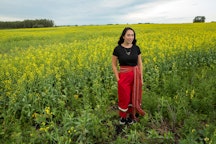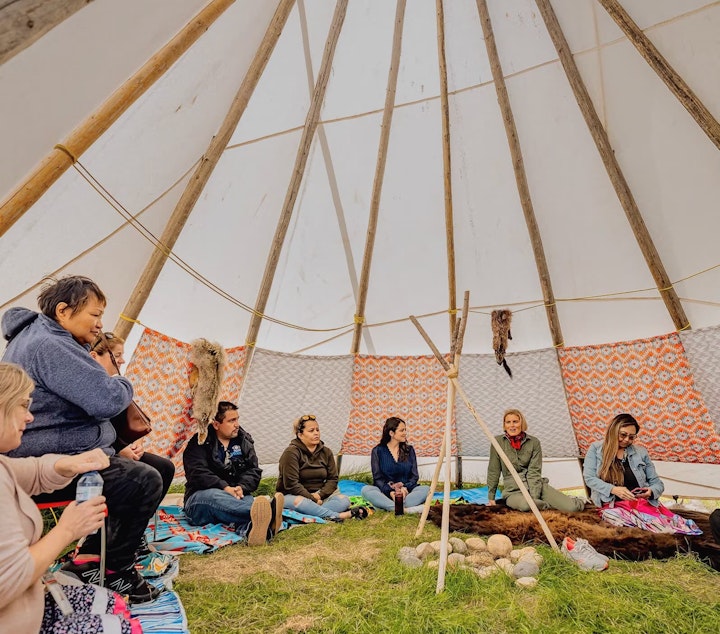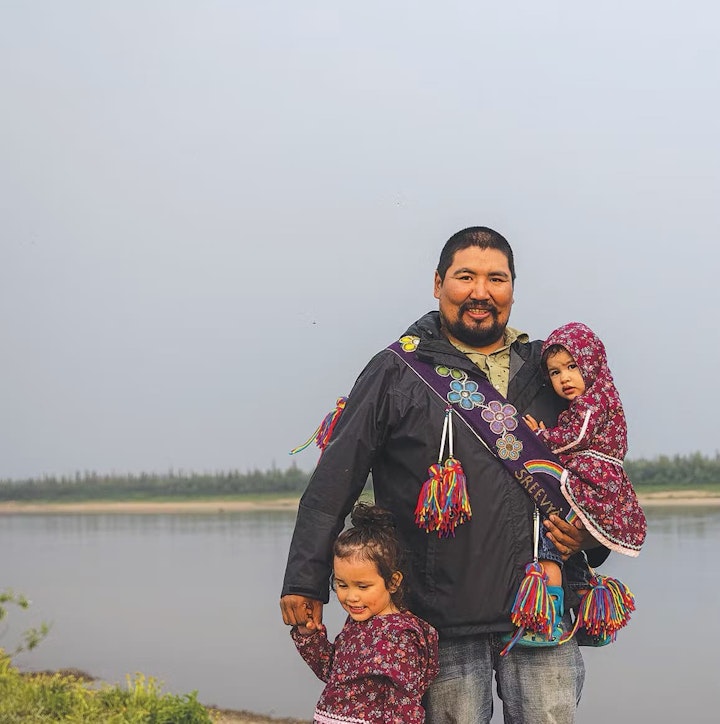Measures of Success
Family Well-being
Dr. Melissa Tremblay, Indigenous scholar and child psychologist at the University of Alberta, discusses developing a cutting-edge approach to case management and assessment for the Early Years program in Maskwacis.
Dr. Melissa Tremblay, Indigenous scholar and child psychologist at the University of Alberta, discusses developing a cutting-edge approach to case management and assessment for the Early Years program in Maskwacis.
“It’s an honour to be entrusted with bringing together such breadth of multiple forms of data in a way that reflects the program’s incredible journey.”
— Dr. Melissa Tremblay
On conducting research with rather than in Indigenous contexts
In the past—and often, the not so-distant past—evaluation and data collection has been done on or in Indigenous communities, rather than with Indigenous communities or by Indigenous peoples. Although researchers and evaluators are increasingly using approaches that encompass increasing community engagement, there are still few examples of research and evaluation projects that are initiated and directed by Indigenous communities. Ultimately, the evaluation of the Early Years Program differs from conventional evaluation and research processes by being community led. Indigenous control over the evaluation of community-based programs is critical. When community members are able to direct the evaluation of initiatives that impact them, community experience and wisdom can integrally inform knowledge generation and mobilization.
On measuring progress in community
For the Early Years program in Maskwacis, Alberta, we’re using scientific methods to collect and analyze quantitative data on outcomes such as supporting healthy pregnancies and enhancing children’s language development. We’re also collecting qualitative data, which involves listening to and documenting the perspectives and stories of Early Years staff and participants, to better understand program progress and impacts. We use self-report questionnaires completed by parents, a questionnaire to monitor the developmental progress of individual children in the program, a population-level kindergarten readiness tool, and monitor multiple health, education, and social outcomes, as well as program implementation progress, through the Early Years’ customized database tool. It’s an honor to be trusted with bringing together such a breadth of multiple forms of data in a way that reflects the program’s incredible journey.
On measuring progress in community
There is immense potential for this evaluation model beyond Maskwacis and beyond the Early Years program itself. Research and evaluation approaches grounded in community and that prioritize relational accountability are critical for two reasons. First, disrupting longstanding colonial research and evaluation practices and policies which Indigenous communities have actively resisted. Secondly, supporting Indigenous children and families to access their unlimited strengths.



